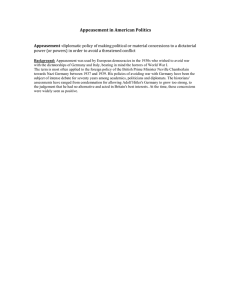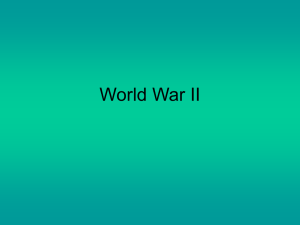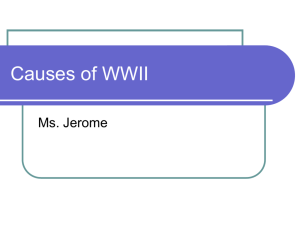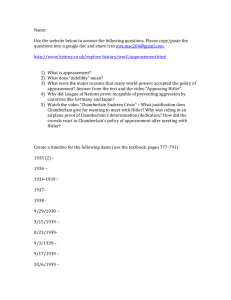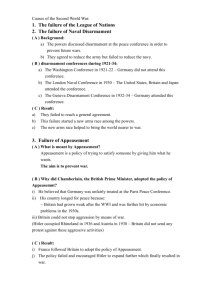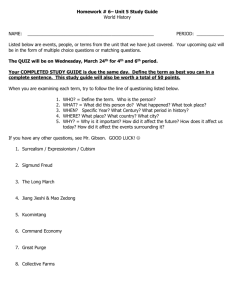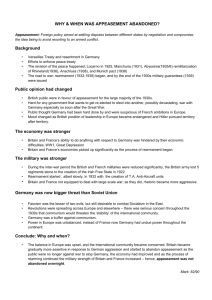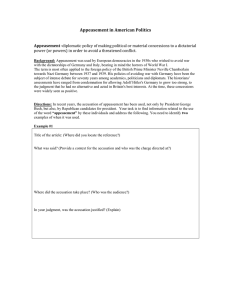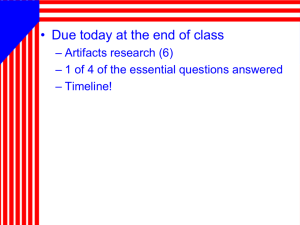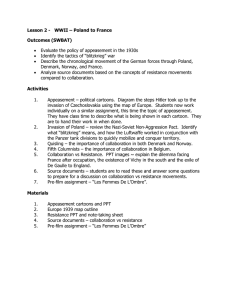Seminar Discussion Questions, Week of 14 September
advertisement
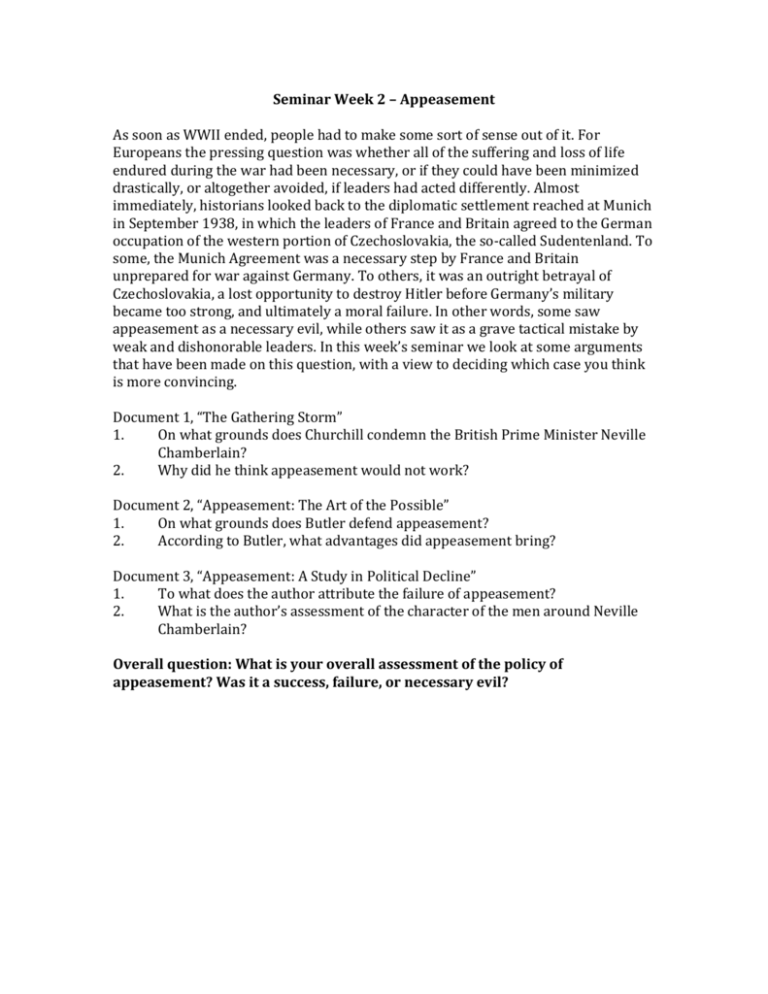
Seminar Week 2 – Appeasement As soon as WWII ended, people had to make some sort of sense out of it. For Europeans the pressing question was whether all of the suffering and loss of life endured during the war had been necessary, or if they could have been minimized drastically, or altogether avoided, if leaders had acted differently. Almost immediately, historians looked back to the diplomatic settlement reached at Munich in September 1938, in which the leaders of France and Britain agreed to the German occupation of the western portion of Czechoslovakia, the so-called Sudentenland. To some, the Munich Agreement was a necessary step by France and Britain unprepared for war against Germany. To others, it was an outright betrayal of Czechoslovakia, a lost opportunity to destroy Hitler before Germany’s military became too strong, and ultimately a moral failure. In other words, some saw appeasement as a necessary evil, while others saw it as a grave tactical mistake by weak and dishonorable leaders. In this week’s seminar we look at some arguments that have been made on this question, with a view to deciding which case you think is more convincing. Document 1, “The Gathering Storm” 1. On what grounds does Churchill condemn the British Prime Minister Neville Chamberlain? 2. Why did he think appeasement would not work? Document 2, “Appeasement: The Art of the Possible” 1. On what grounds does Butler defend appeasement? 2. According to Butler, what advantages did appeasement bring? Document 3, “Appeasement: A Study in Political Decline” 1. To what does the author attribute the failure of appeasement? 2. What is the author’s assessment of the character of the men around Neville Chamberlain? Overall question: What is your overall assessment of the policy of appeasement? Was it a success, failure, or necessary evil?
